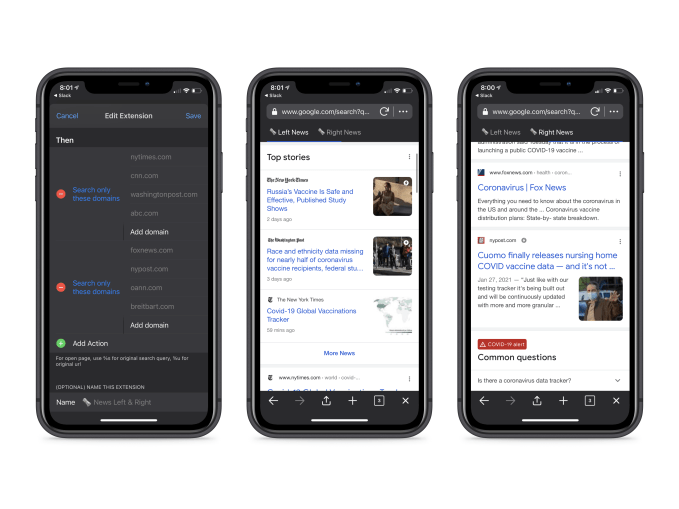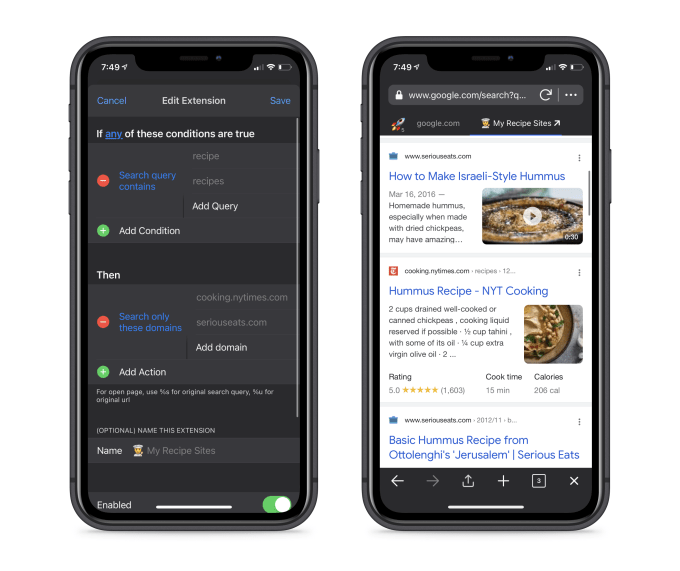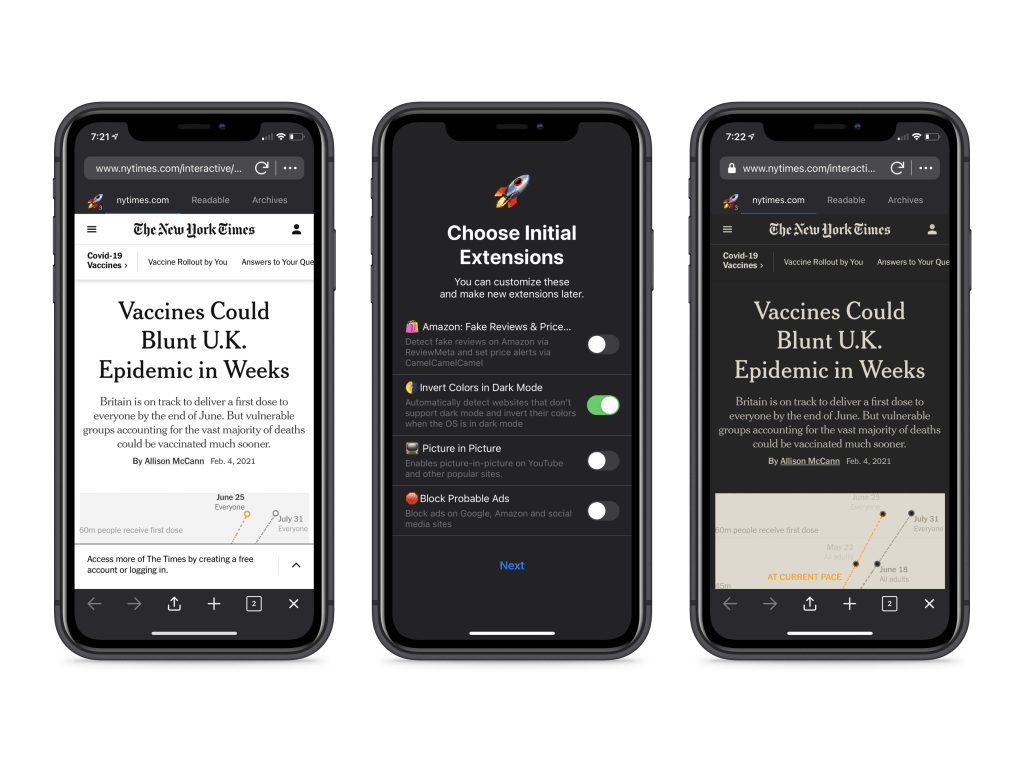A new startup called Insight is bringing web browser extensions to the iPhone, with the goal of delivering a better web browsing experience by blocking ads and trackers, flagging fake reviews on Amazon, offering SEO-free search experiences or even calling out media bias and misinformation, among other things.
These features are made available by way of Insight’s extensions, some of which are suggested during the app’s first launch. Others, meanwhile, can be browsed inside the app, where they’re organized into categories like Search, Shopping, Cooking & Dining, News, Health and Reading. The browser can also make suggestions of extensions to try, based on your browsing behavior, if you opt into that experience.
One extension, for example, can block ads on Google, Amazon and in your social media feeds, like Twitter, Facebook and Reddit. Another works with ReviewMeta to detect fake reviews on Amazon.com and lets you set price alerts with help from CamelCamelCamel’s price tracker. Others let you do things like enable dark mode experiences on sites that don’t offer the feature, check for bias in news via Media Bias Fact Check or watch videos in picture-in-picture mode on YouTube and other video sites.

In total, the company has around one hundred extensions already created, but it offers tools that allow anyone — even non-developers — to create their own, too.
Using a simple interface similar to something like the iOS Shortcuts app, users can define the conditions for their extension using basic “if, then” logic. For example, “if I’m on a page that matches this URL” or “is on this list of domains,” “then also show this other page.”
To make these sorts of features work on mobile took some creativity. Apple restricts what developers are able to do with WKWebView — which means a mobile browser can’t offer the same sort of extensions as you can find on the desktop web.
To work around this problem, Insight created a sort of “sub-tab” workflow where you navigate using swiping gestures. For example, when online shopping, you could view the product you’re interested in, then swipe over to see the available coupons, the trusted product reviews or to comparison shop across other sites.
When looking for a recipe, you could limit searches to only a list of your favorite food blogs. And because you can use extensions together, you could also block the ads on the food blogs and then swipe over to view the site in a “reader mode.”

How this all works is up to you. It’s dependent on what extensions you have installed and enabled, and how they’re configured.
The idea for Insight actually arose from an earlier effort from a startup focused on building a custom search engine for doctors. The team had participated in Y Combinator’s winter 2019 session, where they developed a search engine that would filter out the junk medical content and other pages aimed at consumers from the web, in order to direct doctors to sources they could trust.
But things changed when the COVID-19 pandemic hit.
“A lot of the users we had been working with, up to that point, were medical students. And when the pandemic came to the U.S., medical students and medical schools were shut down and a lot of the students were sent home,” explains Insight co-founder and CEO Archa Jain. “Our user base disappeared overnight,” she said.
The team decided to refocus their efforts on another idea they had been tossing around internally for some time.
“We realized that the problem we were solving isn’t medicine-specific. The fundamental problem was that the internet is just not one-size-fits-all. So we thought, what if everyone could have this ability to customize their browser experience the way we’re doing for this one population? They could really mold their browser to their own needs,” Jain said.
That’s how Insight came to life.
Insight was built by a small team, including Jain, whose engineering background includes time at Google, Uber and Calico, and fellow co-founders Abhinav Sharma, previously of Quora, Mozilla Labs and Facebook, and Shubhi Nigam, previously a PM at Newgen Software.
The company is backed by a seed round of $1.5 million from Y Combinator, Heartcore Capital and Altair Capital.
Longer-term, Insight intends to layer on a pro version of the service on top of the existing offering available today. It also aims to bring the browser to the desktop, where it will work as an extension itself.
Since launching into beta testing in December 2020, the app’s top 10% most active users have been averaging over 1,000 pageviews on Insight per day, which indicates some loyal customers have perhaps shifted to using the app as their preferred mobile browser. Pre-launch, the app had also become the No. 1 most popular download for a time on Airport, an app store for beta products.
Insight is available today as a free download on the App Store.































Comment